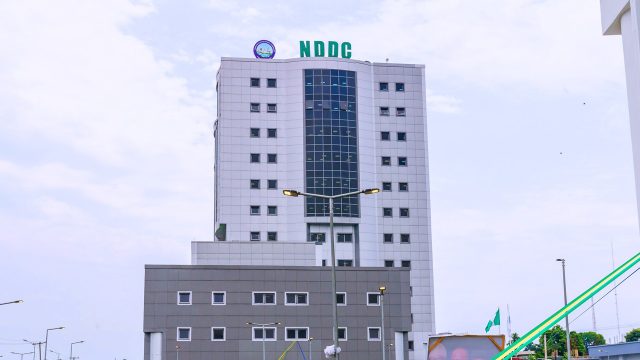SIR: On June 25, 2025, women from across the Niger Delta gathered in Ughelli, Delta State not just to mark International Women’s Day but to demand real change. With the theme “Accelerating Action, Investing in Women, Advancing Rights, Leadership & Equality.”
The event, organised by Womanhood Outreach International and sponsored by the Niger Delta Development Commission (NDDC), delivered a compelling wake-up call to stakeholders and stamped the imperativeness of gender equity, equality, inclusiveness and empowerment if Nigeria must make headway in its quest for socio-economic development.
From school girls eager to glimpse their futures, to entrepreneurs and seasoned academics, the diverse gathering echoed one conviction: systemic gender inequality is injurious to Nigeria’s growth and must be dismantled.
Mrs. Imoni Ahunna, director of Youth, Sports, Culture, and Women Affairs at NDDC, delivered a message that set the tone: “Women must no longer remain at the background. We must step into national conversations, lead advocacy, and drive the change we seek. At NDDC, we are not just celebrating women; we are investing in their power to transform the region,” she said.
The keynote speaker, Dr. Clara D. Moemeke, Associate Professor of Science Education at the University of Delta, Agbor, left no room for complacency and doubt as she made a case for reforms that aim to end stereotype against women and also highlighted the dangers of keeping women down. According to her, “gender equity is not inevitable, it is intentional. It is driven by bold policies, courageous advocacy, and deliberate investment. When we delay gender action, we delay national development.”
She pointed to stark statistics to buttress her submission: Women, according to Moemeke, make up nearly 50 per cent of the global population, yet own only 20 per cent of land, perform 76 per cent of unpaid care work, and remain underrepresented in leadership, with Nigeria ranking 125th out of 146 countries on the 2024 Global Gender Gap Index.
The erudite scholar challenged the audience to look beyond celebration and brainstorm on solutions: “This theme is not a slogan, it is a mandate. Imagine a world where girls complete school without fear of marriage or violence, where women lead without bias, and where every voice matters.”
Essentially, workshops throughout the day tackled economic empowerment, inclusive governance, gender-based violence, and the urgent need for legal reforms. Women shared real-life testimonies- some survivors of abuse and trailblazers in politics and business- all united by a shared demand for justice and opportunity.
On her part, Prof. Mary Olire Edema of the Federal University of Petroleum Resources, Effurun, was of the view that women’s leadership is not a luxury but essential. “Empowering women is a catalyst for sustainable development. Leadership must begin with access to education, to finance, to political platforms, and to safety,” she emphasised during her special address.
Edema called for a cultural shift, saying, “We must move past a society where women join groups to receive handouts and into a generation where women lead cooperatives, industries, and institutions.”
The sessions were not shy of calling out Nigeria’s gender disparities. Women make up less than four per cent of lawmakers in the National Assembly. Notedly, maternal mortality remains among the highest globally. In many rural communities, girls are still more likely to be married off than to finish secondary school. The COVID-19 pandemic widened this gap, pushing women out of jobs and excluding them from stimulus recovery plans.
Dr. Olufunke Chenube of the University of Delta reminded participants that gender inequality is deeply rooted in historical exclusion. “When you exclude half the population from leadership for generations, you don’t just hurt women, you cripple national progress. The laws, the systems, the economy all reflect this inherited bias”, she stressed.
The event laid out clear solutions. These include enforcing affirmative action, mainstreaming gender in national and state budgets, reforming discriminatory laws, investing in girls’ education especially in STEM fields and creating mentorship pipelines that connect young women to role models across industries.
Jerome-Mario Utomi, a media specialist, wrote from Lagos and could be reached via [email protected]
08032725374.







